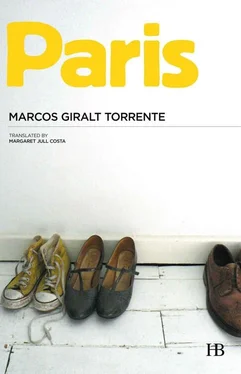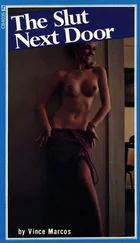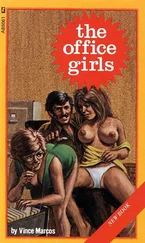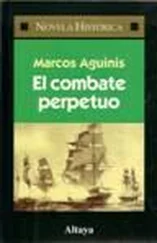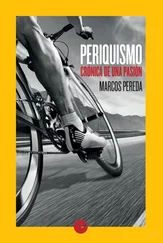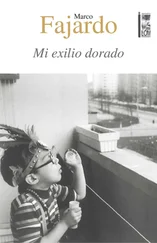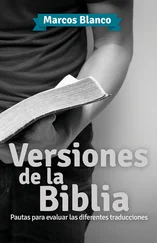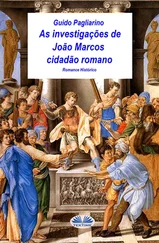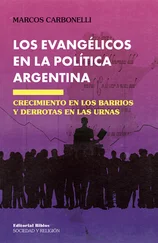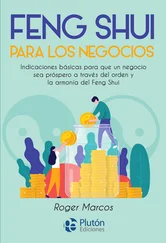Marcos Giralt Torrente - Paris
Здесь есть возможность читать онлайн «Marcos Giralt Torrente - Paris» весь текст электронной книги совершенно бесплатно (целиком полную версию без сокращений). В некоторых случаях можно слушать аудио, скачать через торрент в формате fb2 и присутствует краткое содержание. Год выпуска: 2014, ISBN: 2014, Издательство: Hispabooks, Жанр: Современная проза, на английском языке. Описание произведения, (предисловие) а так же отзывы посетителей доступны на портале библиотеки ЛибКат.
- Название:Paris
- Автор:
- Издательство:Hispabooks
- Жанр:
- Год:2014
- ISBN:9788494228452
- Рейтинг книги:5 / 5. Голосов: 1
-
Избранное:Добавить в избранное
- Отзывы:
-
Ваша оценка:
- 100
- 1
- 2
- 3
- 4
- 5
Paris: краткое содержание, описание и аннотация
Предлагаем к чтению аннотацию, описание, краткое содержание или предисловие (зависит от того, что написал сам автор книги «Paris»). Если вы не нашли необходимую информацию о книге — напишите в комментариях, мы постараемся отыскать её.
Paris — читать онлайн бесплатно полную книгу (весь текст) целиком
Ниже представлен текст книги, разбитый по страницам. Система сохранения места последней прочитанной страницы, позволяет с удобством читать онлайн бесплатно книгу «Paris», без необходимости каждый раз заново искать на чём Вы остановились. Поставьте закладку, и сможете в любой момент перейти на страницу, на которой закончили чтение.
Интервал:
Закладка:
I’ve often thought about that scene in Toledo, and in a way, I consider it a turning point, the moment when I realized how futile it would be to try and penetrate my father’s private world, not in order to try and understand his behavior, but to establish some kind of relationship between us, if not one of equality, then at least of complicity. After all, if my father behaved as he did, it wasn’t because he was trying to hide anything from us, it wasn’t that he’d foreseen that encounter and had things to discuss that he didn’t want my mother or myself to hear; in that case it would have been far easier not to take us with him to Toledo. He was merely trying to keep the two worlds that constituted his life quite separate. My father wanted money and success and to be admired, and while he was capable of committing crimes in order to achieve this, he found it hard to accept that the rest of us knew this, too, because he was the first to disapprove of his divided state. He was aware of that division, of the trap he was falling into, but to recognize it openly or simply take its existence for granted would be to admit his weakness, his tragic dependence on other people. That’s why he built a fence around himself, that’s why he never spoke about prison or the friends he had made there. He was the complete opposite of my mother, who had no problem calling a spade a spade, and the only reason she wanted my father to change was so that she could continue to live peacefully by his side without any unpleasant surprises. She suffered because this was impossible, but she didn’t condemn my father morally or feel ashamed, nor was she concerned about what people might think of him. If she said nothing and kept certain information to herself at times, this wasn’t because she found it hard to admit to others what she herself would have preferred did not exist. It was just that she believed there was a right moment for everything, a belief she clung to implacably. When that moment arrived, however, she would be sure to tell me. Just as on that morning in Burgos she had told me about my father being in prison, later on, she told me almost everything else about him, too. It was clear that this gave her no pleasure, but she made no attempt to dodge my questions. For example, I found out from her that the name “Professor,” which I’d heard in Toledo, was the nickname given to him by the other prisoners in the jails in which he’d spent time, and she was the one who explained how complicated it was to live in a prison if you had no friends, that prisoners use whatever qualities they have to establish alliances, and that my father, who was neither strong nor powerful, had learned to use his education to gain the support and respect of his fellow prisoners, teaching some of them to read and writing letters for others.
But she only told me this long afterward, not on the evening I’m recalling now. That evening, after we left the bar and got into the car to wait for my father, everything happened predictably enough. We sat in the back seat, with the engine off, and talked about the icy weather, about Toledo, about school, and what we were going to do the next day — unimportant matters that would perhaps have helped to pass the time had it not been for my father’s encounter with his friend, but given that the encounter had taken place and that, having been rather rudely dismissed, we were now waiting for him to rejoin us, our banal conversation seemed somewhat forced, because, as both she and I knew, neither of us was thinking about what we were saying but about what was happening a few yards away, behind the glass, not the glass of the small, narrow, misted car window, but a few yards beyond, behind the equally misty window of the bar where we had left him.
It was another twenty minutes or more before my father rejoined us, and yet he seemed neither worried nor nervous. He opened the rear door so that my mother could get out, accompanied her to the driver’s side, waited for her to get in, and after closing her door, walked around the car and got into the passenger seat. We set off, and a tense silence wrapped about us. What had happened in the bar hovered over us, but no one seemed prepared to lay their cards on the table. My father, because he knew that the right thing would be to give us an explanation he had no intention of giving; my mother, because, once again, she chose to keep her cards close to her chest until the next hand was dealt; and me, because while I was aware of having caught a tiny glimpse of my father’s dark side, I didn’t know how important it was, I didn’t know if it was good, or bad, or quite how to judge it. My mother was concentrating on the tarmac road ahead, and my father, equally absorbed, was silent, trusting that the matter would be forgotten. When we reached Illescas, about twenty minutes or so after leaving Toledo, twenty minutes of silence in which he didn’t even open his mouth to say Step on it, Pass this one , or Be careful , as he usually did when travelling with my mother, I suddenly saw a rabbit appear on the righthand side of the road, between us and the car in front, trying to dodge the traffic. We had just passed a yield sign and were travelling slowly enough to be able to brake without the car behind running into us. I don’t know if my mother had noticed the rabbit or if she judged that it had time enough to get across. But when I saw that she wasn’t slowing down and that, in a matter of seconds, the rabbit would be under our wheels, I let out an anxious cry about what only I seemed to notice was about to happen. At that moment, my father, as if emerging from a daydream, said to my mother, “Don’t worry, there’s enough spa—”
He hadn’t even finished the sentence when a soft bump contradicted him — too late. My father turned in his seat, and before I too had turned and knelt on my seat in order to look back, I saw my mother’s eyes in the rearview mirror — she was also looking back.
“No matter,” said my father, seeing the animal lying motionless in the road. “It would have been much worse if we’d had an accident.”
He paused, and seeing that neither my mother nor I said anything, and drawing out the sentence as if he weren’t quite sure what he was going to say, he added, “Yes, that would have been most unfortunate, just when I’m about to start work. .”
“Work?” asked my mother, taking her eyes off the mirror even before he had finished speaking.
“Yes, I was going to use this trip to break the news to you. I’ve been offered work as a translator. Nothing grand, nothing permanent, but something I can be doing while I’m looking for a more stable position. .”
“What do you mean? Have you been given a book to translate?”
“No, it’s not a book,” he said quickly, placing his left hand on my mother’s right knee. “I’ll be working for a company. They pay much better, and I won’t even have to work at home. I’ll go to the office in the mornings and do whatever needs doing that day, you know, economic reports, legal stuff. They pay per page, and the work’s much more regular than it is with books.”
For a few seconds, no one spoke. My father withdrew his hand from my mother’s knee, and she, who had listened to him intently, seemed once more to focus on the road ahead, thinking.
“But why didn’t you tell me before?” she said after a few seconds, without turning to look at him. “You don’t keep something like that to yourself.”
“It was a surprise. It’s still several days before I start. I begin work next Monday.”
“Even so, it’s quite enough of a surprise without you keeping it a secret.”
Those last words were said more in order to reestablish an affectionate harmony than as a genuine reproach, so I need hardly say what a deep impression they made on me. My mother and father had never before broached such serious subjects in my presence, and I had never before had the opportunity to observe so clearly the effect that a gesture or a few words from my father could have on my mother. Nothing strange about that. Often, especially at the age I was then, we don’t know what we want or miss or what’s right at any given moment until someone puts it into words, and it had simply never occurred to me that my father would have to work. I knew he’d had dealings with publishers and had once tried to set up his own publishing business, but I hadn’t thought that this would have to continue now that he had become part of our lives again. My mother hadn’t mentioned it, and I had no idea that it would be a necessary condition, a proof of his determination to stay on the straight and narrow. That day, driving back from Toledo, I was aware of this for the first time, and of my mother’s difficult position, caught as she was between simulating some kind of stability for my benefit and the uncertainty into which she was plunged by having to depend on my father to achieve that stability. Not that she said anything out of the ordinary or, afterward, allowed herself to be carried away on a wave of euphoria. It was enough for me to see her unease during that brief conversation, and the gleam of pleasure in her eyes in the rearview mirror as my father explained the situation to her.
Читать дальшеИнтервал:
Закладка:
Похожие книги на «Paris»
Представляем Вашему вниманию похожие книги на «Paris» списком для выбора. Мы отобрали схожую по названию и смыслу литературу в надежде предоставить читателям больше вариантов отыскать новые, интересные, ещё непрочитанные произведения.
Обсуждение, отзывы о книге «Paris» и просто собственные мнения читателей. Оставьте ваши комментарии, напишите, что Вы думаете о произведении, его смысле или главных героях. Укажите что конкретно понравилось, а что нет, и почему Вы так считаете.
